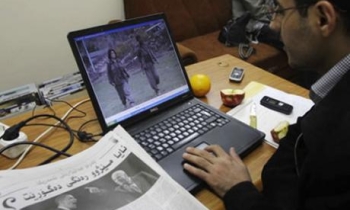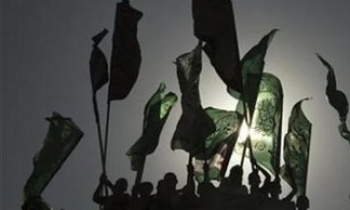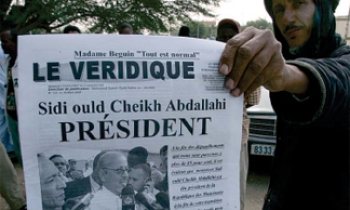With Osama Bin Laden’s last tape, we can see that he is not only acting as a celebrity but he is also being treated as one. Of course, this also applies to Abu Musab Al-Zarqawi, Ayman Al-Zawahiri and the other "stars" of our news bulletins.
Having said this, I must confess to having doubts and questions about how these situations are dealt with and indeed whether they should even be covered. Should TV stations air such tapes? And I include all the ones of nameless, faceless groups of kidnappers and the tragic chorus, standing in front of the camera reciting a mantra while a trembling victim sits in front of them.
Though these barbaric scenes have become almost common on TV, I still wonder if it is OK to become so familiar with atrocities. Does familiarity not diminish our rage by transforming the staged acts into just another item on the evening news?
To tell the truth, we must admit that our reactions to blood and mangled bodies on TV have considerably softened. Yes they still produce anger and resentment but not as they did the first time. The horrors – wars, murders, massacres – are becoming familiar now.
I talked about my dilemma to a group of friends who are all in the media; I wanted to get a feel for what they felt and they all thought it was necessary to show the terrible images to the public.
It is the right of the public, they said, to know what is happening and also these savageries are news and so should be treated as such.
One well-known American journalist said there was "no doubt that the terrorists’ activities and statements are news. While terrorists have certainly used the media to send messages and to gain an audience they could not otherwise have reached, the images also make their values clear as well as making their lack of respect for human life equally clear."
Therefore if by showing the videos and statements, we are publicizing the terrorists’ acts, at the same time, we are also exposing them to public scrutiny.
A very valid argument and I agree with it though I still feel uneasy about giving those people the opportunity to parade their victims before the entire world.
On the other hand, there is an opinion that says that the media are just another "competitive business" and that those who failed to get the scoop are those who whine the most.
That is undeniably one way of looking at it. After all, the news channels are there primarily for doing good business and making profits so anything that contributes to either or both is going to be broadcast.
Looking generally at the Arab media, we can see the tendency to play on emotions is greater than with the Western media. The footages of blood and bodies are always part of our news coverage.
Some sources take it to the extreme of showing the gore with no consideration for what people can bear or whether young viewers and children may be adversely affected by such explicit coverage.
The logic of business is the driving force here – what sells, in other words. The most sensational picture is the one that is put on the front page, and the owners of the paper can thus be sure that sales will be good that day.
For example, the picture of a headless American hostage’s body in Riyadh was carried on the front page of one of our national papers and apparently, no one felt that this was taking things too far.
Even for the sake of news or exposing criminals, there should be a limit to what can be shown to people. I wonder what makes it all right to shock people and make bloody criminal acts part of their daily dose of news.
Will that not in the end make such acts all too familiar and end up by trivializing them? When a reputable corporation such as the BBC can exercise sense when airing bloody pictures, why cannot Arab TV do the same?









